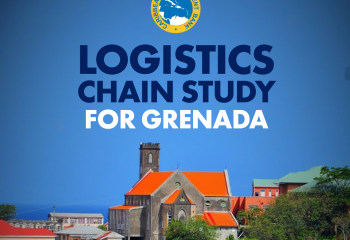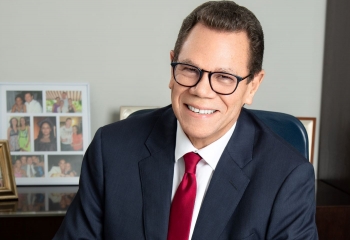High- Level Roundtable Addressing the Triple Crisis in Food, Energy and Finance for the Eastern Caribbean: International experiences and policy implications for the Region

Less than a month ago, the Caribbean Development Bank (CDB) and the United Nations signed a letter of intent to strengthen cooperation in key areas of mutual interest. It is a very positive sign that the partnership is already bearing fruit with the staging of this Roundtable to assess and address areas of crisis that have the potential to derail the Caribbean’s Sustainable Development campaign.
The COVID-19 pandemic represented an unprecedented shock to the economic and social landscape of all regional economies. Actions taken by governments to preserve lives and livelihoods have contributed to deep fiscal imbalances and large increases in debt levels. While the region’s economies have started to recover, they continue to be hampered by the adverse effects of climate change, global inflationary pressures, and curtailed access to critical commodities. These existing and emerging threats are encroaching at a time when governments have fewer financial resources for infrastructure and social investment, and this will most likely result in delays in achieving the Sustainable Development Goals (SDGs).
However, I believe that strategic thinkers look for the opportunities presented by crisis. Invariably when we are constrained from operating in familiar and comfortable ways, we are forced to employ greater innovation as we search for solutions. Since the resources, ingenuity and capacity to provide answers to the myriad of challenges we face regionally do not rest with any single source, we must acknowledge our inter-dependence and band together.
Therefore, while the pathway to the 2030 Agenda remains challenging, establishing strategic partnerships is critical. This is why CDB welcomes this Roundtable as it will bring together various interests which have the potential to combine resources for maximum impact. This level of collaboration can extend the reach of our individual organisations to neutralise common threats and accelerate the achievement of targeted social, environmental and economic outcomes. Given the magnitude of the challenge ahead, leveraging our joint capacity to support the achievement of the SDGs is not only prudent but necessary at this time.
Further to the point, CDB welcomes the focus of the discussion panels on the current food and energy crisis with an emphasis on finance, the key factor in the development equation. These are areas of fundamental priority that require our immediate focus because, even beyond the question of achieving the SDGs, they speak to the very survival of this Region that we serve.
As we contemplate these pressing matters, at the heart of our dialogue must be the drive to build resilience. This is the overarching goal of CDB’s current strategy and operations. We cannot sustain development without resilience. Therefore, in our deliberations today, we ought not discuss matters such as food security, energy security and the need for adequate finance in a vacuum. The solutions must come through the creation of a resilience ecosystem encompassing productive capacity, institutional capacity, social development, environment, and finance. When we look at the issues in tandem and recognise their interconnectivity we can begin to devise and implement holistic solutions to not only address our current crisis but reposition our economies to better absorb future shocks with minimum dislocation for our people, communities and organisations.
To this end, I hope these discussions will create new pathways for deepening relationships across the region and for finding those high impact projects that can change the development trajectory of the Caribbean and benefit our citizens. Our needs are immense, but I believe that our unbounded ingenuity and creativity can enable us to meet any challenge.
I thank you.


